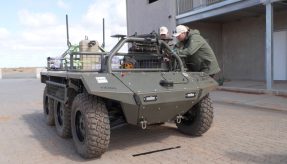
A new experiment to study the effects of space weather on global communications is being launched by the UK and US governments.
Using specially designed shoebox-sized satellites known as CubeSats, scientists from the Defence Science and Technology Laboratory (Dstl) will be able to study the Earth’s upper atmosphere and find out how it impacts on radio frequencies through space.
The Wideband Ionospheric Sounder CubeSat Experiment (WISCER) project builds on work carried out by Dstl and the University of Birmingham, which was partly funded by the UK Space Agency. It forms part of a joint programme with the Naval Research Laboratory in the United States (US). Plans are now in place to launch two CubeSat satellites during 2020/21, each with a UK and a US payload.
The UK payload will contain a WISCER antenna and waveform generator that will transmit a signal to a bespoke ground signal receiver, assessing the impact of the ionosphere on the signal. The US payload will measure how electron density changes with altitude. The collaboration offers the opportunity to generate data cost effectively, with both countries potentially sharing results.
Dr Mike O’Callaghan, Space Programme Manager at Dstl, said: “We’re trying to find out how the ionosphere might affect us when we communicate. For example, are signals weaker during specific space weather conditions? It’s important to understand the effects and how it might impact our communications around the world, specifically with military operations.
“Space is a global endeavour and collaboration is absolutely critical to delivering the WISCER project. We’re excited to be launching the project and will be looking at initial results once in orbit.”
If you would like to join our community and read more articles like this then please click here.
CubeSats Defence Science and Technology Laboratory Dstl global communications space weather






